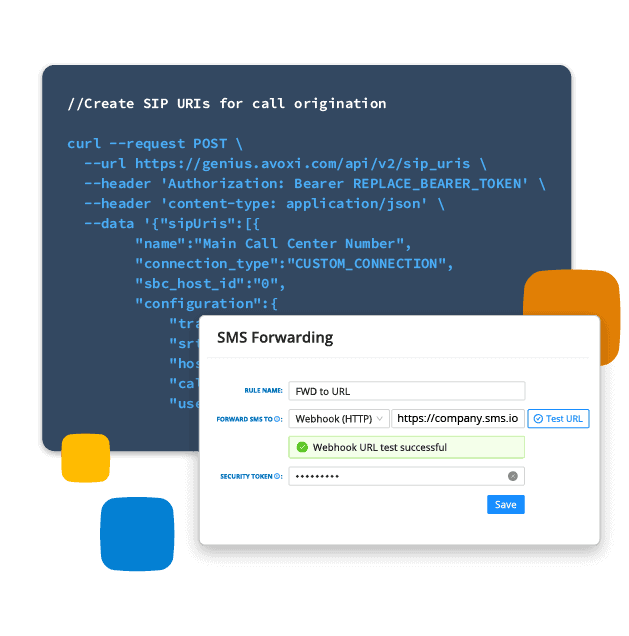Programmable Voice API
Programmable Voice APIs
Build a customizable voice solution that fits the way you and your customers get business done. Program our inbound and outbound calling capabilities with our extensive voice API toolkit - all within your own product and applications.
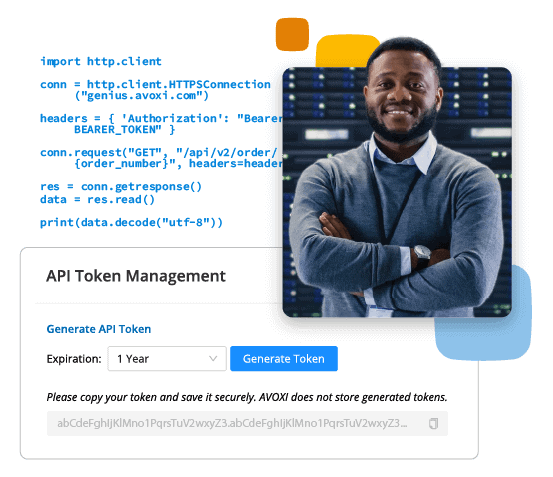
Integrate, Automate and Take Control of Your Global Communications
Make it easy for your team and customers to build, track and activate their voice solution and manage their inventory footprint within their own environments. Here’s all you can achieve with our programmable voice APIs.
Voice
Ordering & provisioning
Easily search and add phone numbers as you need them - even in your most challenging markets. View numbers on your screen based on type, location, SMS-enabled and more. Plus, add voice tools like call recording and call insights.
International number porting
Send us your porting requests quickly and retain your legacy numbers. Our international porting experts will guide you through the process so your transfer is as seamless as possible. Plus, porting with us is free.
Session initiation protocol (SIP)
Manage and configure your SIP protocols, caller ID format, real-time transport protocol (RTP) or secure real-time transport protocol (SRTP), and authentication types within your preferred application.
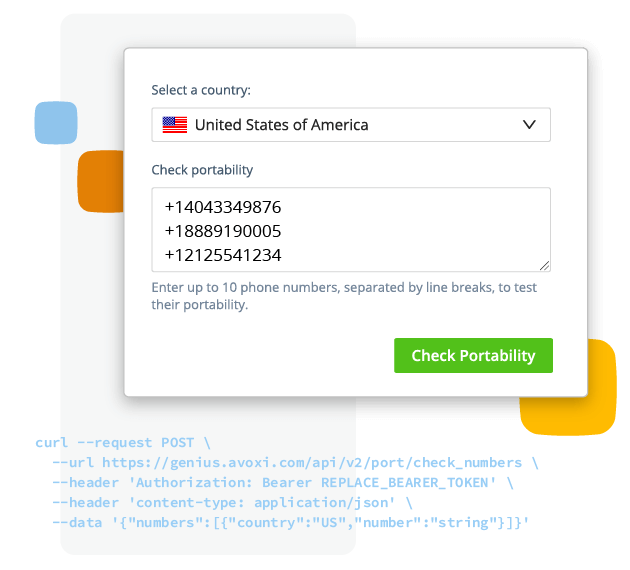
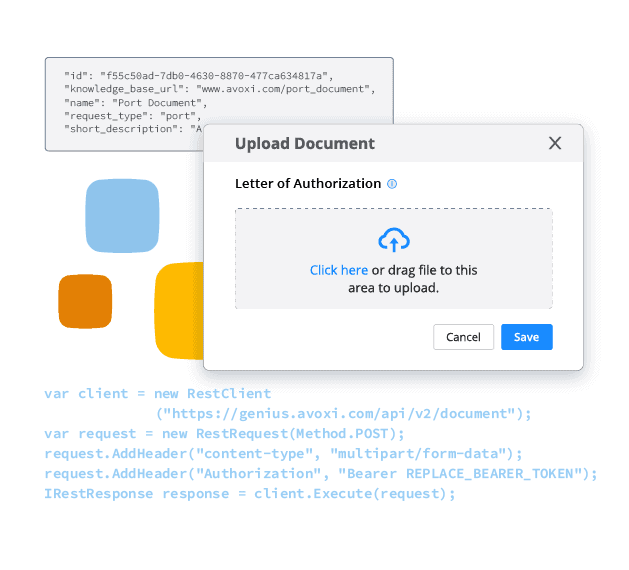
Document Management
Compliance
Remain in full government compliance wherever you do business. Regulations we support include CCPA, GDPR, HIPAA, PCI-DSS, POPIA and STIR/SHAKEN.
Registration requirements
It can be challenging with so many different requirements worldwide. Our API returns the names of the local documentation you need to ensure a smooth ordering process.
Create a documents library
Expedite future orders quickly with a documents library. Upload all of your required paperwork, and pull documentation as you need it to expedite your future orders.
SMS
Centralize campaigns
Integrate your voice and SMS with your existing platform or standalone phone system to drive engaging campaigns and deliver an excellent experience in the channel your customers love.
Inbound messages
Humanize your business with SMS forwarding. When customers message you, personalize replies from your email inbox. Customers then receive it as a text.
Mobile packages
We offer affordable and scalable mobile plans in 18 countries and counting. Easily manage two-way SMS plus complimentary call tools and business reporting features.
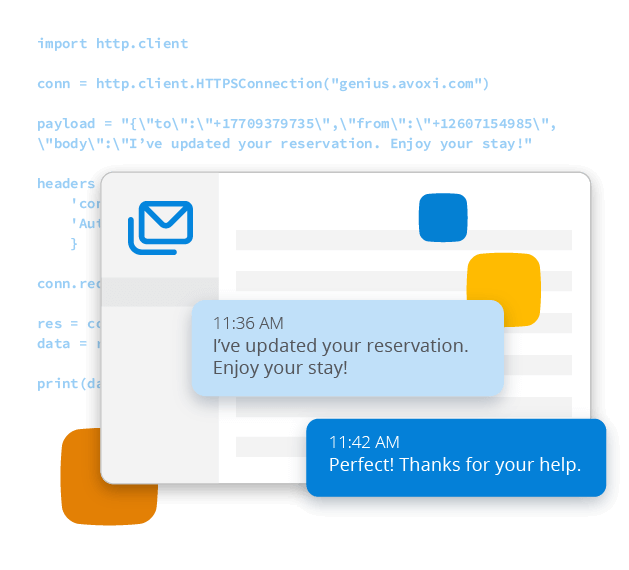
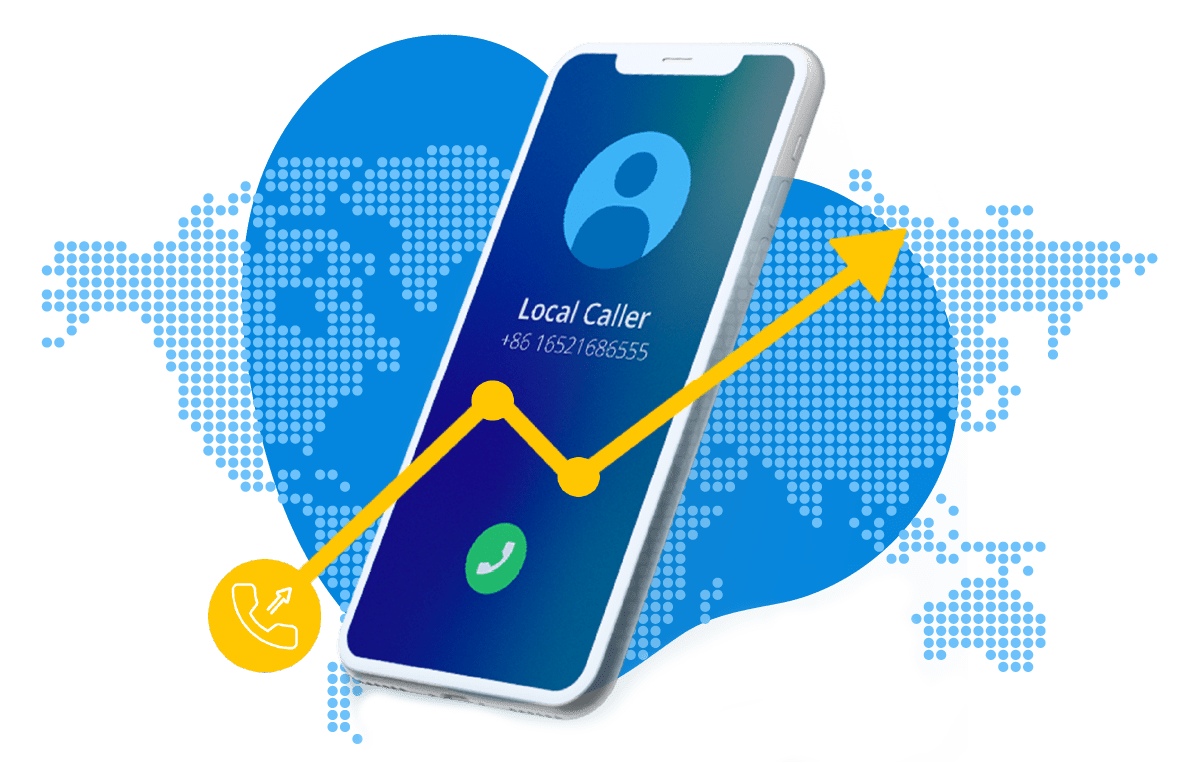
Look & Sell Local
Looking for a simple way to make better connections and increase global answer rates without having a physical market presence? Local voice + caller ID is the way to go.
Our Voice API Toolkit
Built to support Shell, Node, Javascript, Python Java, Go and C# programming languages. Implement these APIs into your own customer-facing applications and immediately tap into our massive global inventory without having to change platforms.
Additional Resources to Help You Get the Needle Moving
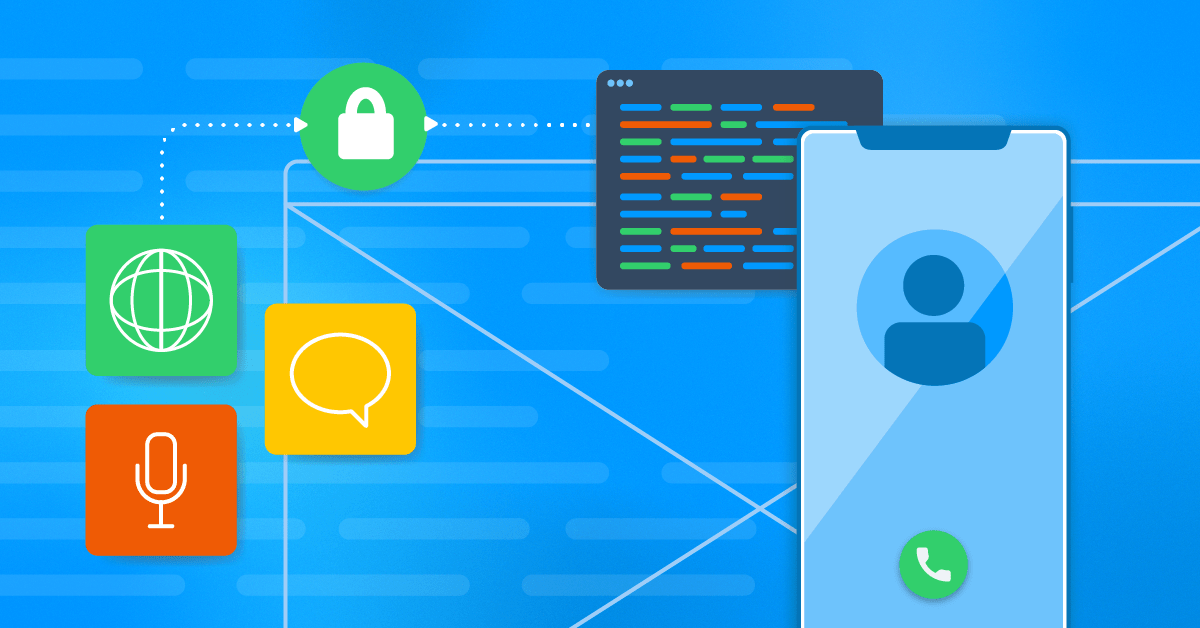
Resellers
3 Advantages
of Voice APIS
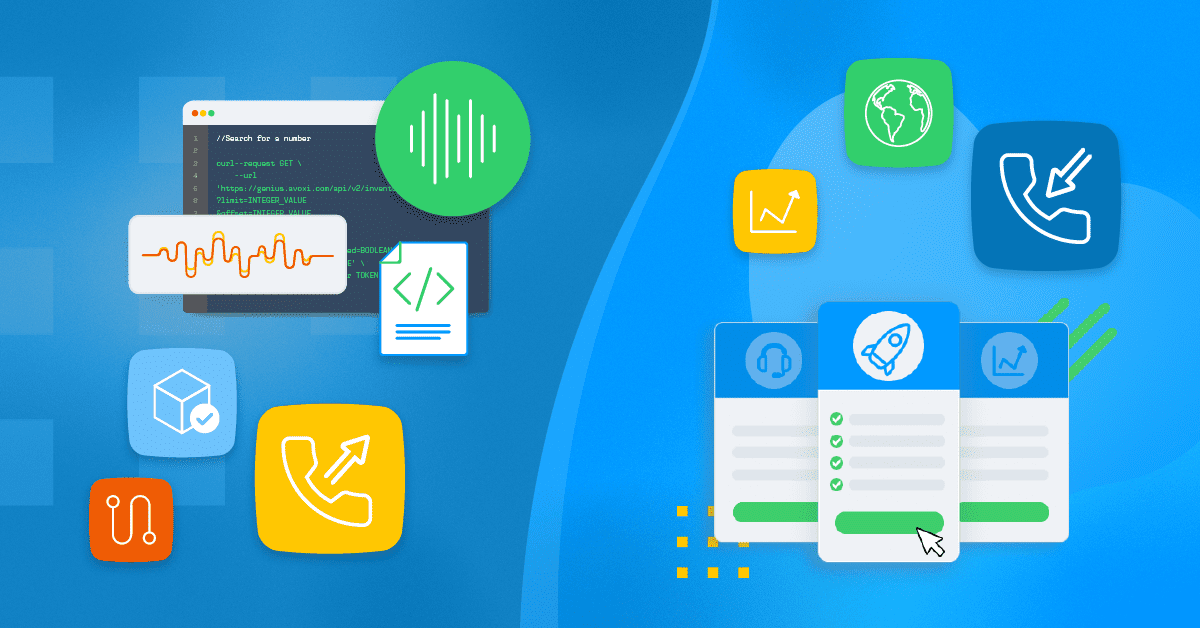
VoIP Solution
Flex Program
vs Calling Plans

Webhooks vs APIs
Webhooks vs APIs
for App Data Sync
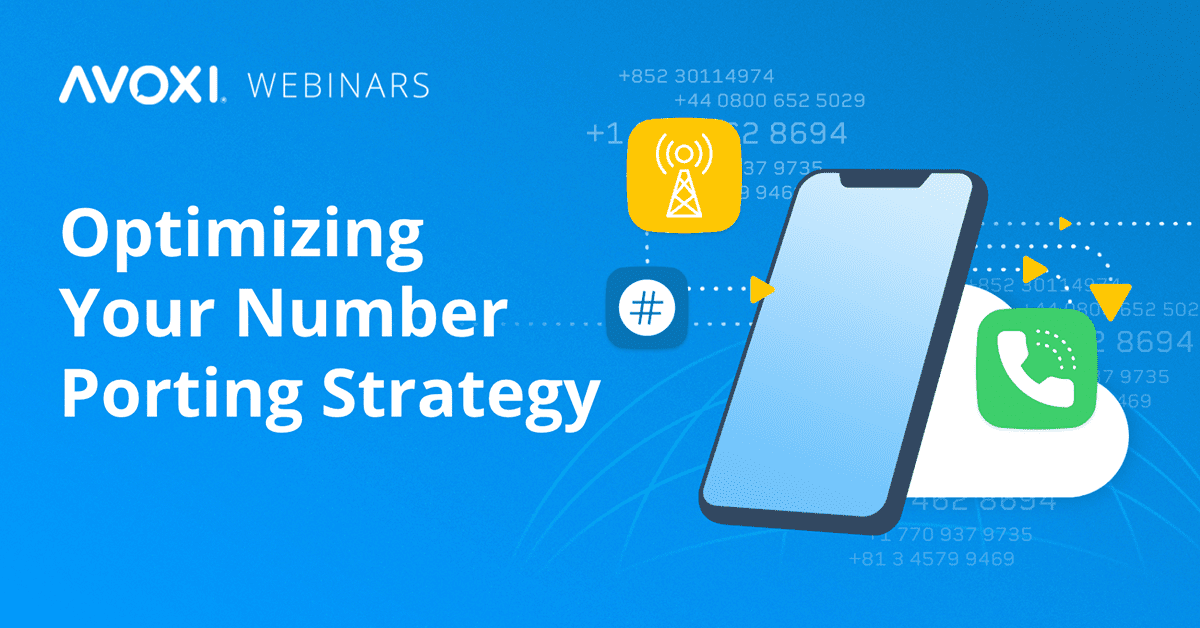
International Porting
Optimizing Your
Number Porting Strategy
Programmable Voice APIs
Programmable Voice APIs have emerged as groundbreaking solutions for individuals and businesses aiming to establish efficient and effective customer connections. These APIs, also known as Application Programming Interfaces, offer a versatile platform enabling developers to seamlessly integrate voice communication functionalities into their applications or services. By leveraging programmable voice APIs, individuals and enterprises can enhance customer engagement, streamline operations, and provide a superior user experience.
Programmable Voice APIs are particularly valuable for businesses operating in the enterprise sector. With the rapid evolution of technology and communication channels, voice APIs empower enterprises to optimize their customer interactions by incorporating voice capabilities into their existing systems. By integrating programmable voice APIs, businesses can create interactive voice response (IVR) systems, conduct voice-based surveys, enable two-way communication, and deliver automated voice notifications, among other features. These capabilities enhance the customer experience, reduce operational costs, and improve overall efficiency.
The implementation of voice APIs for enterprise solutions offers numerous advantages. Firstly, it allows businesses to reach their customers more personalized and directly, fostering stronger connections and increasing customer satisfaction. Programmable voice APIs enable businesses to deliver timely information, such as order updates, appointment reminders, or personalized offers, through voice messages, ensuring that crucial messages are conveyed effectively.
Furthermore, programmable voice APIs provide flexibility and scalability for enterprises. With customizable features and integrations, businesses can tailor voice-based communication solutions to meet their needs and preferences. Whether it's integrating with existing customer relationship management (CRM) systems or building interactive voice applications, programmable voice APIs offer a robust framework that adapts to the unique requirements of each enterprise.
How Does Voice API Work?
Programmable Voice APIs have emerged as groundbreaking solutions for individuals and businesses aiming to establish efficient and effective customer connections. These APIs, also known as Application Programming Interfaces, offer a versatile platform enabling developers to seamlessly integrate voice communication functionalities into their applications or services. By leveraging programmable voice APIs, individuals and enterprises can enhance customer engagement, streamline operations, and provide a superior user experience.
Programmable Voice APIs are particularly valuable for businesses operating in the enterprise sector. With the rapid evolution of technology and communication channels, voice APIs empower enterprises to optimize their customer interactions by incorporating voice capabilities into their existing systems. By integrating programmable voice APIs, businesses can create interactive voice response (IVR) systems, conduct voice-based surveys, enable two-way communication, and deliver automated voice notifications, among other features. These capabilities enhance the customer experience, reduce operational costs, and improve overall efficiency.
The implementation of voice APIs for enterprise solutions offers numerous advantages. Firstly, it allows businesses to reach their customers more personalized and directly, fostering stronger connections and increasing customer satisfaction. Programmable voice APIs enable businesses to deliver timely information, such as order updates, appointment reminders, or personalized offers, through voice messages, ensuring that crucial messages are conveyed effectively.
Furthermore, programmable voice APIs provide flexibility and scalability for enterprises. With customizable features and integrations, businesses can tailor voice-based communication solutions to meet their needs and preferences. Whether it's integrating with existing customer relationship management (CRM) systems or building interactive voice applications, programmable voice APIs offer a robust framework that adapts to the unique requirements of each enterprise.
VoIP API Providers
When it comes to finding a trusted VOIP API provider, there are a few key characteristics to look for to ensure that you are making an informed decision. First and foremost, choosing a provider with a strong reputation in the industry is important. This can be done by researching the company online, reading customer reviews and testimonials, and checking to see if they have any industry awards or recognitions.
Another important characteristic to look for is reliability. You want to choose a provider with a proven uptime track record and quality service. This can be determined by looking at their service level agreements (SLAs) and checking to see if they have a redundant network infrastructure in place to ensure maximum uptime.
Security is also a crucial component when it comes to choosing a VOIP API provider. Look for a provider that has a strong focus on security, with features such as encryption, multi-factor authentication, and intrusion detection and prevention systems. Additionally, make sure the provider is compliant with relevant regulations, such as HIPAA and GDPR.
Customer support is another important factor to consider when choosing a VOIP API provider. Look for a provider that offers 24/7 support, with multiple communication channels available, such as phone, email, and chat. You want to ensure that you can get in touch with someone quickly and easily if you have any issues or questions.
Finally, it is important to be wary of providers that offer extremely low prices or make promises that seem too good to be true. These providers may be cutting corners on important components such as security or reliability, which can end up costing you more in the long run. It is always better to pay a little more for a provider that you can trust to deliver high-quality service.
Finding a trusted VOIP API provider requires careful research and consideration of several important characteristics. By choosing a provider with a strong reputation, reliability, security, customer support, and fair pricing, you can make an informed decision that will meet your business needs and goals.
AVOXI is a trusted and well-known provider of voice API. As one of the leading VoIP API providers, Avoxi offers a reliable and efficient voice API service. With our extensive experience in the telecommunications industry, AVOXI is a reputable voice API provider that businesses can rely on for their custom voice solutions. Additionally, AVOXI provides international number porting services, allowing businesses to seamlessly transfer their existing numbers to their platform. Whether businesses require an enterprise voice solution or a custom voice API, AVOXI has the expertise and capabilities to meet their needs.
